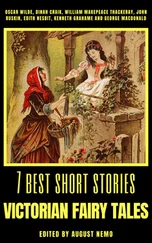“I respect popular belief,” Toby said. “It’s mostly guesswork, like my own endeavors. Mr. Jennings, there are things we know without knowing that we know them.”
“Yes, but…” He didn’t finish the sentence. Both he and I could tell there was no stopping her.
So she started her next book before the gazebo was begun. She wrote in her bedroom loft. The book’s hero was young Titus of the port of London.
For Titus in the shipyard, working with the oaken, the sea always beckoned. It beckoned with the crooked finger of death, for he had lost father, brothers, uncles, and a cousin to the foam. Some with his history might have fled inland and become a laborer on a farm, or made his home in a town, or joined an abbey. But water was Titus’s passion.
“How are you getting on?” asked Mr. Jennings, whose feet were planted on the Turkish rug. He had dropped in with a basket of zucchini; I was slicing the squash on the tiny counter.
“Getting on fine,” Toby called down.
Titus was in charge of the construction of the longboat. The Roman/British longboat, unremembered by historians, was graceful, narrow, light, with a shallow draft hull designed for speed and which allowed navigations in waters only one meter deep. The longboat was fitted with oars along the length of the vessel. It bore a rectangular sail on a single mast which was used to replace or aid the effort of the rowers, particularly during long journeys like the one planned now.
The next time he brought wine. “Full sails ahead,” Toby informed him.
They left London, Titus on the seventh oar — for though he was master and captain, there was no provision made for rank; everyone rowed. He was a short, muscular young man with a Saxon profile grafted onto a Roman head, and his hair was dark…Months later, his battered ship sighted the coast of what would one day be called these United States.
“Would you like to give a talk at the library?” Mr. Jennings asked on his now daily visit.
“Love to.”
A coastline of cliffs and gorges and rocks presents an unwelcoming aspect. The newcomers rowed on. Romans were aware of premonition: the feeling that imminent disaster is hiding behind every cloud, every wave. They lived in a permanent state of anxiety. Titus feigned boldness, but he constantly fingered the good-luck coin his sweetheart had given him, which hung on his chest. Where on this earth would they land?
They landed in the estuary formed by the then unnamed river and the sea. Now called Piscataqua, of course.
“Would you read me some of your work?” said Mr. Jennings, looking loftward from the chair I’d provided.
“…Okay.
“‘After the brave beginning came the deaths by disease, by unknown poisons in plants, by animals; came wars with natives, peace with natives, children. Came hurricanes, surely sent by the God. Came the final disease, a mercilessly lengthy fever; and then came the collapse into itself and then into dust of everything remembered, everything that could be remembered, obliteration as complete as that of…’”
“Atlantis?” wondered Mr. Jennings. “Troy?”
“I am thinking of a Hungarian community in 1943.”
He was respectfully silent.
She continued…
“‘Titus had taken a wife, had become chief, as was his destiny. He burned his dead children one by one on rafts sent out to sea (the Vikings did not invent the Viking funeral, just added the dog at the feet of the deceased). He himself was slain by fever, and the few remaining Piscataquans, dying themselves, managed to bury him, not burn him. He became part of the dust of the encampment beside Lake Piscataqua.’”
Well, everybody knows about the publishing business today, perishing like the longboats. Toby’s usual editor had escaped into another line of work; the imprint which had sponsored the editor immersed itself in a larger company and that company into one larger. That conglomerate assigned to its greenest editor the new offering by an author from, as they saw it, the generation previous, though Who Set Fire to Smyrna? was still on the backlist.
We met in the young editor’s office. “The thing’s just too fucking unlikely,” he said. (He didn’t say fucking, but the word was essentially printed on his curled lip.) “Your other stories…you could make a case for them. Not this one.”
Toby tapped her manuscript with two fingers. “Much here might have happened.”
“Viking artifacts are thick on the ground in the Piscataqua area.” He had done his homework. “There’s not so much as a Roman fishhook. Your other heroes, your children as it were, have a habit of seeking their fortunes and finding them. That still sells books. But poor Titus finds only oblivion. Please change tack. Write something different…And, Ms. Bluestein,” he added as she was walking with that cleft chin raised, “no more carbon copies, I beg you.”
We met Uncle Franz in our favorite Hungarian place. He wore a black ribbon on his lapel; he had been a widower for several months. “There are other publishers,” he said.
“Not for me. Fictohistoriographia is out of style. Everything is out of style except sex”—Uncle Franz reddened—“and money.”
“About that…”
“There’s plenty to live on.”
Silence. “When,” he said.
“Now.”
“I must alarm the store.” While Toby went to Penn Station to buy him a ticket I accompanied Uncle Franz. He busied himself for a few moments among his display cases. A small satchel was beside the door, already packed. We met Aunt Toby at the train. We passed woods, farms, glimpses of the sea.
We’d left our car near the station. Uncle Franz and his satchel took the backseat. We drove the two-lane highway, then a smaller road, then a dirt road. And finally the water beckoned us, purple-blue in the afternoon, its surrounding pines blue-green.
“As you described it,” Uncle Franz said. “An economy of palette.” His sigh quivered. “Beautiful. Beautiful no matter who discovered it first.”
When we got to the stone house, Toby threw the manuscript on the couch and Uncle Franz settled his satchel beside it. We went swimming. Despite his age, Uncle Franz was fit, and a good swimmer, though he avoided jumping off our little raft, merely slid into the embrace of the water. His swimming shorts flared like a skirt. He must have bought them just after the war, when the Joint Distribution Committee brought him to New York.
At dinner he said, “The vegetable plot needs immediate work.”
The next day the three of us harrowed, raked, created furrows, planted tomatoes and lettuce and cucumbers. We dug up artifacts — barrettes, number 6d nails.
One day Uncle Franz brought inside an object covered with mud and laid it on a newspaper on our trestle table. He washed it with water and a cloth and detergent from his satchel. A magnifying glass emerged from the satchel too.
He passed the thing around and then held it in his palm and inspected it. “It’s copper,” he guessed. Once perhaps green, it was now as pale as the wings of his hair. “A woman on one side, a ruminant on the verso. The coin dates from about 400 A.D. It originated in Rome, traveled through the empire, perhaps spent time in Britain, who can say…”
Uncle Franz had once given me a lecture on fakes. “Sometimes the fakes are tooled…authentic, but improved by the tooling. Sometimes they are fantasy coins, or modern coins made to look ancient.” But this wasn’t a fake. Lifted by his loving fingers from the New England soil, it was metal money from Rome. “It has been deformed by age but the only deliberate defacement is that hole near the animal’s horns. It was probably worn as a lucky charm.”
Читать дальше












